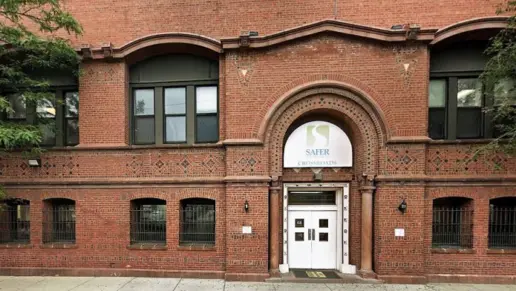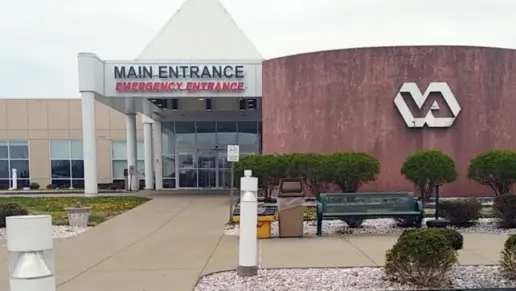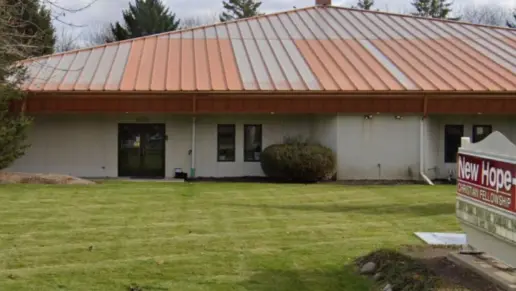About Lake County Behavioral Health – Addictions Treatment Program
Lake County Behavioral Health–Addictions Treatment Program (ATP) is a 12 step-focused drug and alcohol rehab for adults in Waukegan, Illinois. They offer dual diagnosis care, medically supervised detox, intensive inpatient treatment, and aftercare support, including specialized programming for young adults, persons with hearing impairment, pregnant and postpartum women, intravenous drug users, and Spanish-language speakers.
Lake County Behavioral Health–Addictions Treatment Program (ATP), in Waukegan, Illinois, provides 12 step-focused addiction recovery services for adults, including dedicated programming for young adults, persons with hearing impairment, Spanish-language speakers, pregnant and postpartum women, intravenous drug users, and persons with co-occurring addiction and mental illness.
Medically Supervised Detox
Clients undergoing detox receive round-the-clock medical supervision and may be prescribed FDA-approved medications to ease withdrawal symptoms and prevent potentially serious complications.
Inpatient Program
The inpatient program allows clients to focus on their sobriety in a highly structured and supportive environment. Clients receive medical and mental health assessments, personalized care planning, and comprehensive case management. They also engage in intensive, trauma-informed individual, group, and family counseling drawing on proven modalities, including CBT and DBT. An array of evidence-based complementary therapies, including meditation, is available. The program promotes clients’ sustained sobriety and successful reintegration into their home, workplace, and community through robust recovery-focused life skills training addressing topics such as self-care, coping, wellness, anger and stress management, and relapse prevention.
Aftercare Services
Their aftercare services ensure a complete continuum of care aligned with clients’ evolving needs. Services may include transitional support for clients stepping down to outpatient treatment, 12 step program facilitation, and referrals for medical, mental health, and social service programs.
Accreditation and Payment
Lake County Behavioral Health–Addictions Treatment Program (ATP) is accredited by the Joint Commission and SAMHSA. They accept private insurance, Medicare, Medicaid, and self-pay. Financial aid and sliding scale payment assistance are available.
Latest Reviews
Rehab Score
Gallery
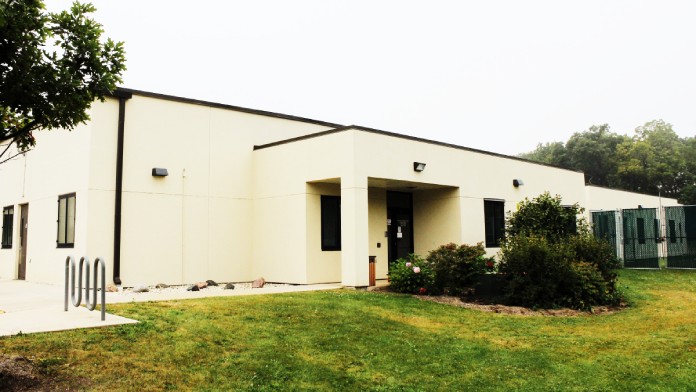
Location
Accepted Insurance

Other Forms of Payment
Medicaid is a state based program that helps lower-income individuals and families pay for healthcare. Medicaid covers addiction treatment so those enrolled can use their coverage to pay for rehab. When a program accepts Medicaid the client often pays very little or nothing out of their own pocket.
Self-pay involves paying for treatment out of your own pocket. You can use savings or credit, get a personal loan, or receive help from family and friends to fund your treatment. If you don't have insurance or your insurance plan doesn't cover a specific program, self-pay can help ensure you still get the care you need.
Financial aid can take many forms. Centers may have grants or scholarships available to clients who meet eligibility requirements. Programs that receive SAMHSA grants may have financial aid available for those who need treatment as well. Grants and scholarships can help you pai for treatment without having to repay.
Sliding scale payments are based on a client's income and family size. The goal is to make treatment affordable to everyone. By taking these factors into account, addiction recovery care providers help ensure that your treatment does not become a financial burden to you or your family, eliminating one barrier to care.
Private insurance refers to any kind of healthcare coverage that isn't from the state or federal government. This includes individual and family plans offered by an employer or purchased from the Insurance Marketplace. Every plan will have different requirements and out of pocket costs so be sure to get the full details before you start treatment.
Medicare is a federal program that provides health insurance for those 65 and older. It also serves people under 65 with chronic and disabling health challenges. To use Medicare for addiction treatment you need to find a program that accepts Medicare and is in network with your plan. Out of pocket costs and preauthorization requirements vary, so always check with your provider.
Addiction Treatments
Levels of Care
Treatments
The goal of treatment for alcoholism is abstinence. Those with poor social support, poor motivation, or psychiatric disorders tend to relapse within a few years of treatment. For these people, success is measured by longer periods of abstinence, reduced use of alcohol, better health, and improved social functioning. Recovery and Maintenance are usually based on 12 step programs and AA meetings.
Drug rehab in Illinois is designed to help people recover from addiction to a number of substances. The length of each program and its intensity tend to vary, and the plan of care is based on your individual needs.
Opioid rehabs specialize in supporting those recovering from opioid addiction. They treat those suffering from addiction to illegal opioids like heroin, as well as prescription drugs like oxycodone. These centers typically combine both physical as well as mental and emotional support to help stop addiction. Physical support often includes medical detox and subsequent medical support (including medication), and mental support includes in-depth therapy to address the underlying causes of addiction.
Substance rehabs focus on helping individuals recover from substance abuse, including alcohol and drug addiction (both illegal and prescription drugs). They often include the opportunity to engage in both individual as well as group therapy.
Programs


Clinical Services
Cognitive Behavioral Therapy (CBT) is a therapy modality that focuses on the relationship between one's thoughts, feelings, and behaviors. It is used to establish and allow for healthy responses to thoughts and feelings (instead of unhealthy responses, like using drugs or alcohol). CBT has been proven effective for recovering addicts of all kinds, and is used to strengthen a patient's own self-awareness and ability to self-regulate. CBT allows individuals to monitor their own emotional state, become more adept at communicating with others, and manage stress without needing to engage in substance abuse.
In the DBT Group patients must be involved in individual therapy at the clinic to be in this group. The group uses instructional lecture, group discussion, behavioral rehearsal with modeling and role-play, written handouts, and homework assignments to help you decrease unmanageable issues in your life. Mindfulness skills are central to this group.
Family involvement with treatment, when clinically helpful to a client's progress, is encouraged. Case managers are available to assist families in obtaining the resources necessary to restore balance. They strive to help youth and their families develop positive coping techniques, communication skills and the means to manage mental health issues, while maintaining a healthy lifestyle.
Group therapy is any therapeutic work that happens in a group (not one-on-one). There are a number of different group therapy modalities, including support groups, experiential therapy, psycho-education, and more. Group therapy involves treatment as well as processing interaction between group members.
In individual therapy, a patient meets one-on-one with a trained psychologist or counselor. Therapy is a pivotal part of effective substance abuse treatment, as it often covers root causes of addiction, including challenges faced by the patient in their social, family, and work/school life.
The Trauma Treatment Program provides services to Lake County residents, ages 2 through 18, who have experienced trauma. Trauma Focused—Cognitive Behavioral Therapy is an evidenced-based treatment proven effective in working with children and adolescents who have experienced trauma. TF-CBT teaches us how to cope with unhelpful or inaccurate thoughts, confusing and overwhelming feelings, and unhealthy or risky behaviors that the experience of trauma many times causes. Topics include: Education about Trauma, Relaxation, How to Identify and Express Emotions.
Amenities
-
Private Setting
Staff & Accreditations
Staff
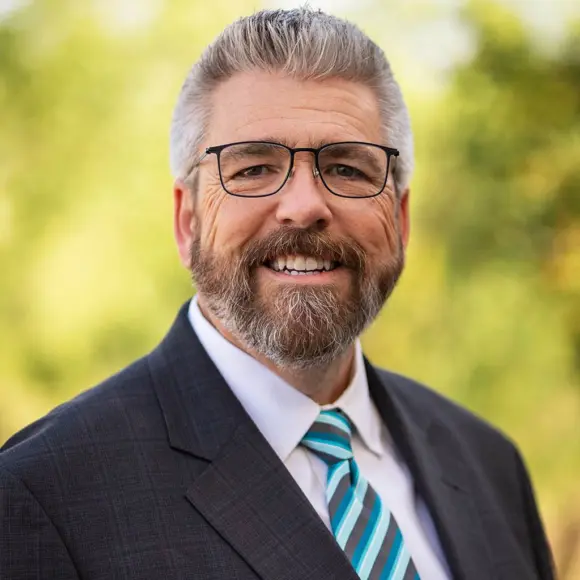
Interim Executive Director

Director of Healthcare Operations

Director of Finance and Administrative Services & CFO

Interim Director of Behavioral Health

Director of Prevention


Director of Business Operations

Director of Health Informatics and Technology
Accreditations

The Joint Commission, formerly known as JCAHO, is a nonprofit organization that accredits rehab organizations and programs. Founded in 1951, the Joint Commision's mission is to improve the quality of patient care and demonstrating the quality of patient care.
Joint Commission Accreditation: Yes

The Substance Abuse and Mental Health Services Administration (SAMHSA) is a branch of the U.S. Department of Health and Human Services. Established in 1992 by congress, SAMHSA's mission is to reduce the impact of substance abuse and mental illness on American's communities.
SAMHSA Listed: Yes
Contact Information
3002 Grand Avenue
Waukegan, IL 60085
